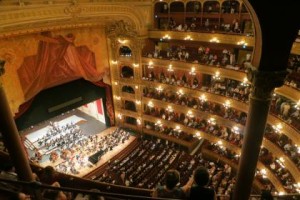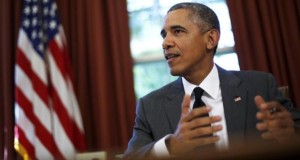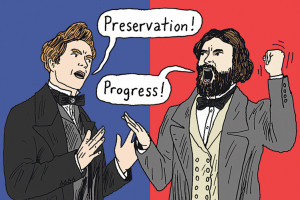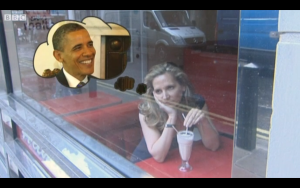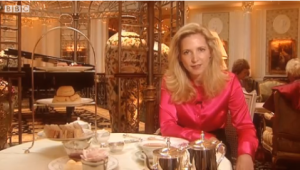Kings and politicians have used their last moments on the world stage to deliver words of inspiration.
November 5, 2020
The concession speech is one of the great accomplishments of modern democracy. The election is over and passions are running high, but the loser graciously concedes defeat, calls for national unity and reminds supporters that tomorrow is another day. It may be pure political theater, but it’s pageantry with a purpose.
For most of history, defeated rulers didn’t give concession speeches; they were too busy begging for their lives, since a king who lost his throne was usually killed shortly after. The Iliad recounts six separate occasions where a defeated warrior asks his opponent for mercy, only to be hacked to death anyway. The Romans had no interest whatsoever in listening to defeated enemies—except once, in the 1st century, when the British chieftain Caractacus was brought in chains before the Senate.
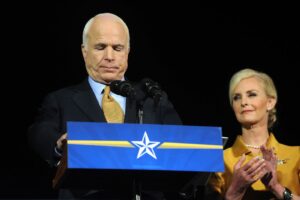
Republican presidential candidate John McCain delivers his concession speech on Nov. 4, 2008, after losing the election to Barack Obama.
PHOTO: ROBYN BECK/AGENCE FRANCE-PRESSE/GETTY IMAGES
On a whim, the Emperor Claudius told Caractacus to give one reason why his life should be spared. According to the historian Cassius Dio, the defeated Briton gave an impassioned speech about the glory of Rome, and how much greater it would be if he was spared: “If you save my life, I shall be an everlasting memorial of your clemency.” Impressed, the Senate set him free.
King Charles I had no hope for clemency on Jan. 30, 1649, when he faced execution after the English Civil War. But this made his speech all the more powerful, because Charles was speaking to posterity more than to his replacement, Oliver Cromwell. His final words have been a template for concession speeches ever since: After defending his record and reputation, Charles urged Cromwell to rule for the good of the country, “to endeavor to the last gasp the peace of the kingdom.”
In modern times, appeals to the nation became an important part of royal farewell speeches. When Napoleon Bonaparte abdicated as emperor of France in 1814, he stood in the courtyard of the palace of Fontainebleau and bade an emotional goodbye to the remnants of his Old Guard. He said that he was leaving to prevent further bloodshed, and ended with the exhortation: “I go, but you, my friends, will continue to serve France.”
Emperor Hirohito delivered a similar message in his radio broadcast on Aug. 14, 1945, announcing Japan’s surrender in World War II. The Emperor stressed that by choosing peace over annihilation he was serving the ultimate interests of the nation. He expected his subjects to do the same, to “enhance the innate glory of the Imperial State.” The shock of the Emperor’s words was compounded by the fact that no one outside the court and cabinet had ever heard his voice before.
In the U.S., the quality of presidential concession speeches rose markedly after they began to be televised in 1952. Over the years, Republican candidates, in particular, have elevated the art of losing to almost Churchillian heights. John McCain’s words on election night 2008, when he lost to Barack Obama, remain unmatched: “Americans never quit. We never surrender. We never hide from history. We make history.”








